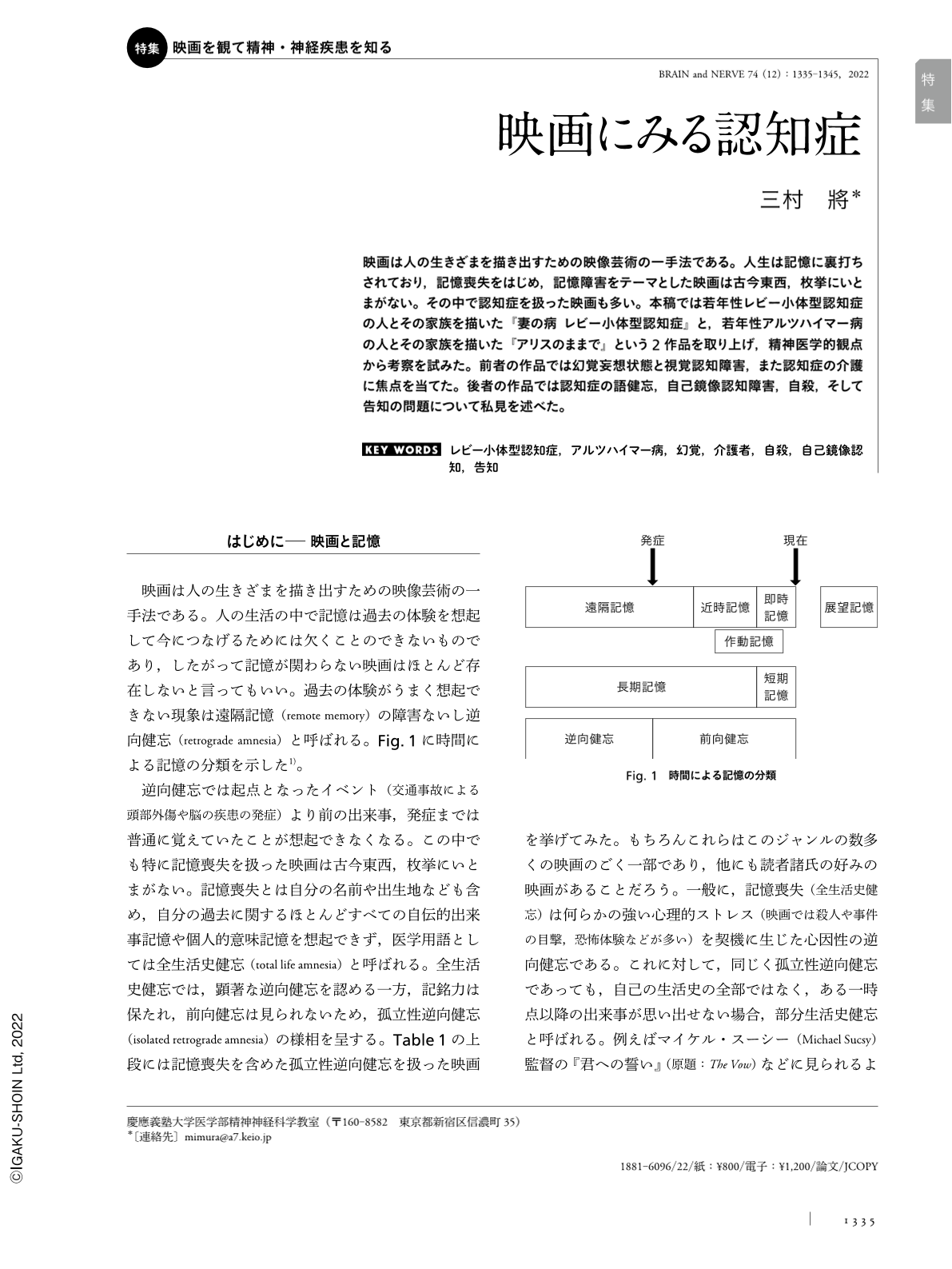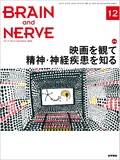Japanese
English
- 有料閲覧
- Abstract 文献概要
- 1ページ目 Look Inside
- 参考文献 Reference
映画は人の生きざまを描き出すための映像芸術の一手法である。人生は記憶に裏打ちされており,記憶喪失をはじめ,記憶障害をテーマとした映画は古今東西,枚挙にいとまがない。その中で認知症を扱った映画も多い。本稿では若年性レビー小体型認知症の人とその家族を描いた『妻の病 レビー小体型認知症』と,若年性アルツハイマー病の人とその家族を描いた『アリスのままで』という2作品を取り上げ,精神医学的観点から考察を試みた。前者の作品では幻覚妄想状態と視覚認知障害,また認知症の介護に焦点を当てた。後者の作品では認知症の語健忘,自己鏡像認知障害,自殺,そして告知の問題について私見を述べた。
Abstract
Cinema is a visual art which vividly depicts human life. Since human life is supported by memory, a number of movies tackle memory disorders including total life amnesia. In addition, dementia or neurocognitive disorder is one of the popular subjects in cinema. Two movies are introduced in this review. The first one, My Wife's Illness, depicts the story of a pediatrician's housewife who suffers dementia with Lewy bodies. She complains of significant visual hallucinations and delusions, which torments her husband. The second one, Still Alice, portrays a university professor of linguistics. Interestingly, her first symptom is word-finding difficulty. She shows rapid progression of Alzheimer's disease. During the course of her cognitive impairment, she develops symptoms including mirror sign and suicidal ideation. The problem of truth-telling for Alzheimer's disease is also discussed in this film.

Copyright © 2022, Igaku-Shoin Ltd. All rights reserved.


